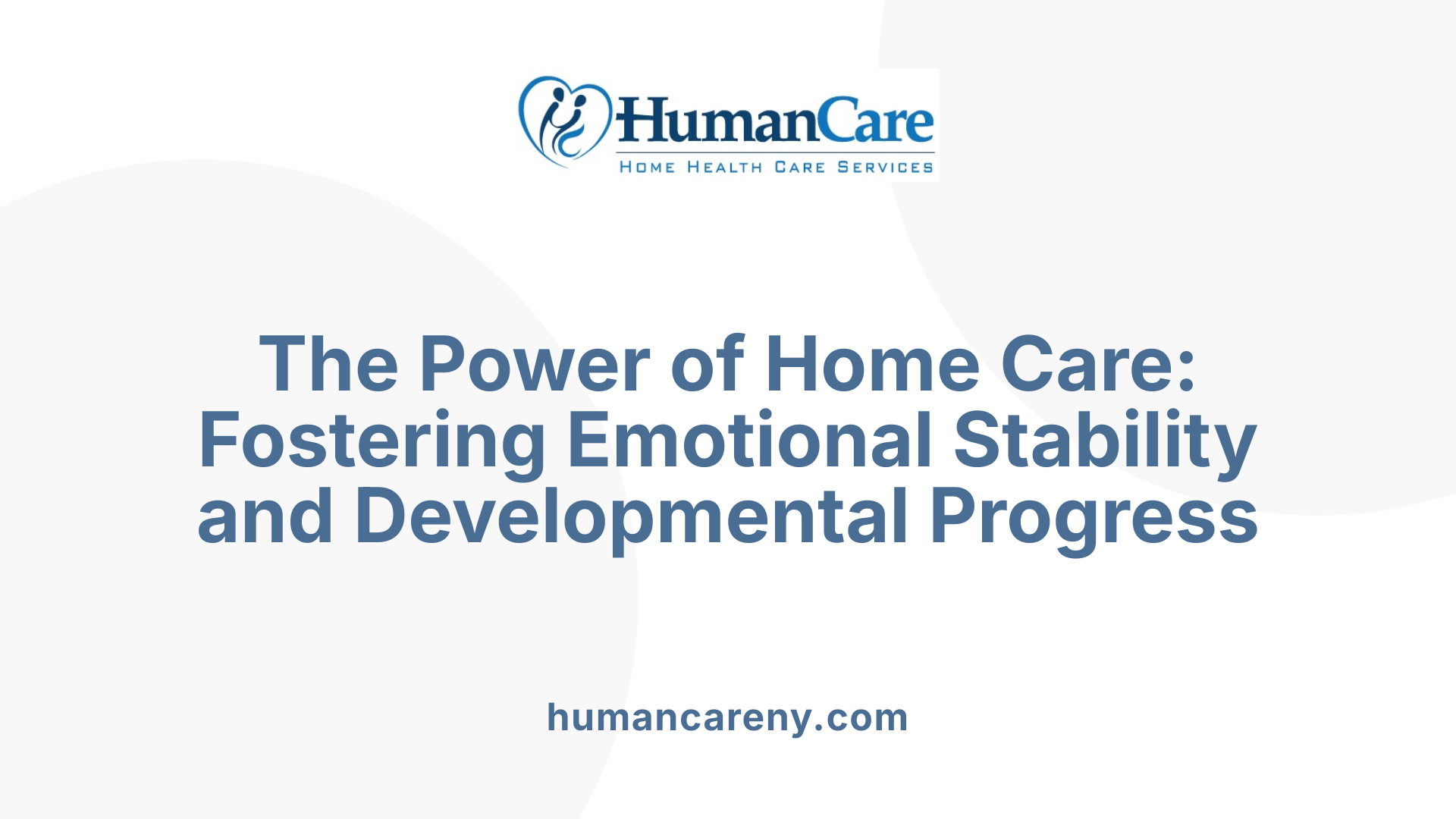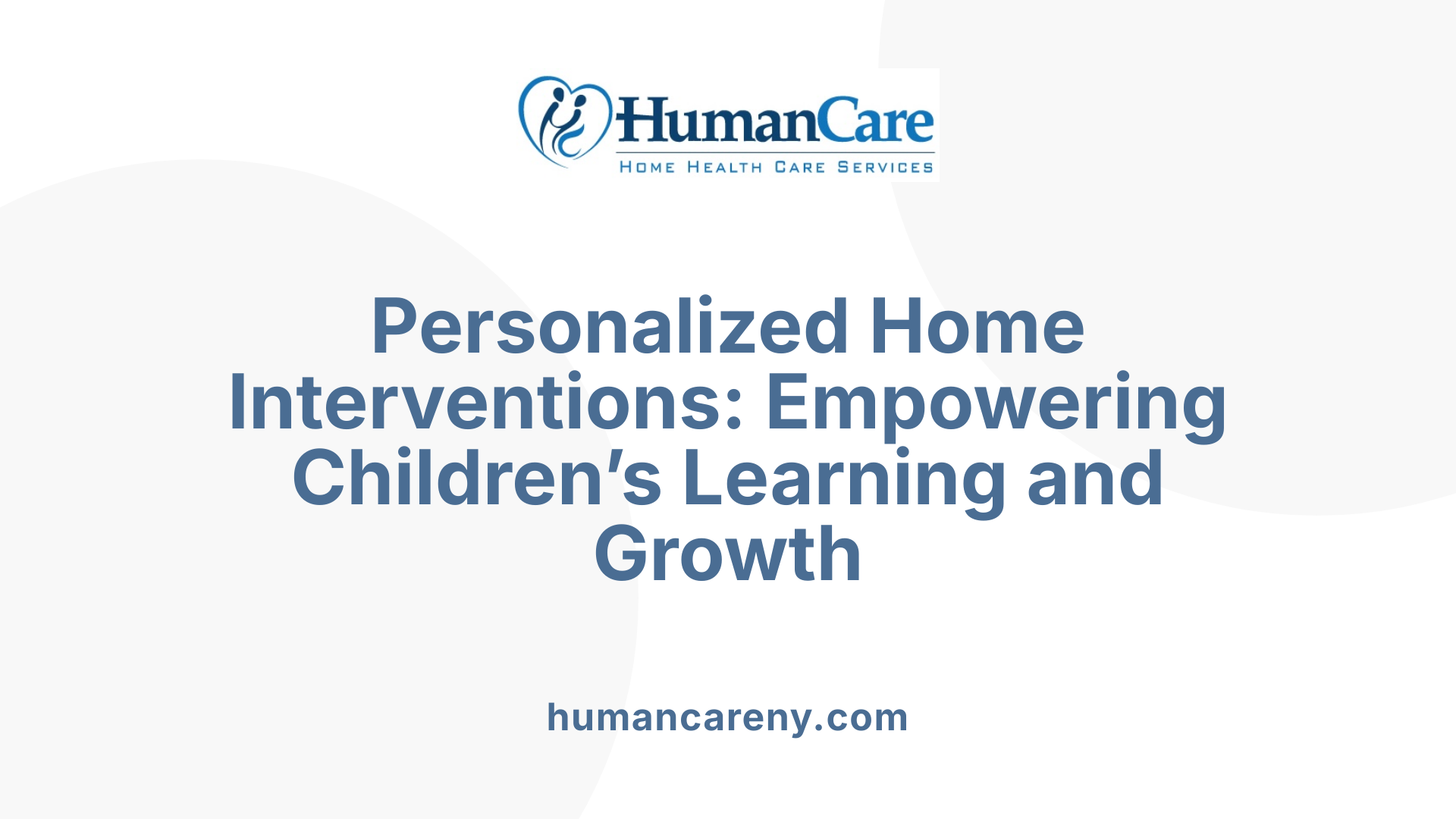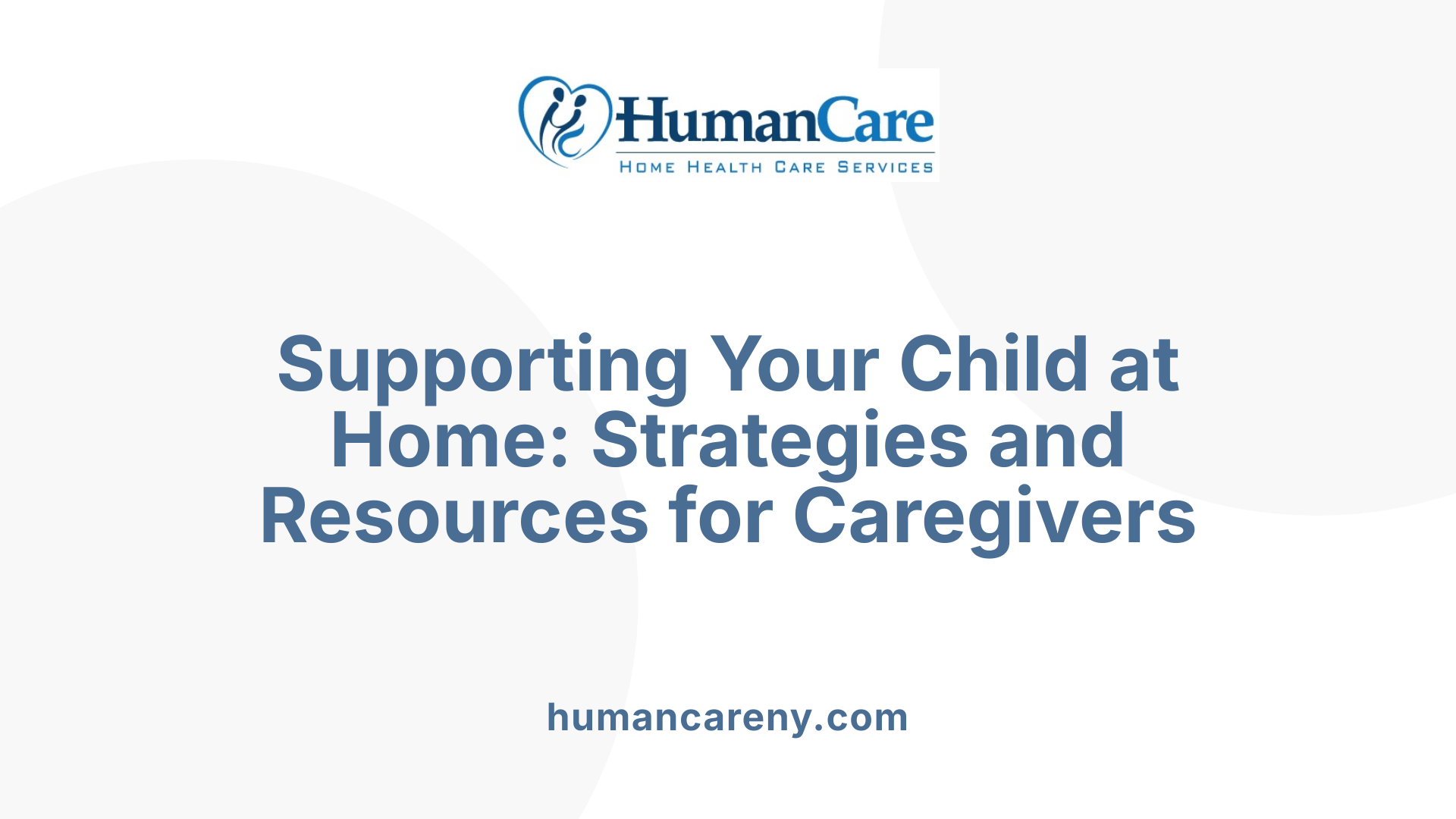Understanding Pediatric Home Care's Role in Special Education
Pediatric home care has emerged as a vital component in supporting children with special education needs (SEN). By providing personalized medical, therapeutic, and emotional support within the comfort of the child's home, this care model addresses individual needs comprehensively, improving developmental outcomes, educational participation, and family well-being.
Comprehensive Range of Services Enriching Educational Participation
What services are available for children with special needs?
Children with special needs have access to a broad spectrum of services aimed at supporting their development, health, and educational inclusion. Government programs such as Medicaid and CHIP are foundational, providing healthcare coverage tailored to children with chronic conditions and disabilities. These programs enable access to medical care, therapies, and necessary support tools while reducing financial burdens on families.
In addition, financial assistance programs like Supplemental Security Income (SSI) offer monthly payments for eligible disabled children from low-income families, helping cover additional needs and expenses. Temporary Assistance for Needy Families (TANF) and the Supplemental Nutrition Assistance Program (SNAP) further support family stability and nutritional needs.
Private organizations and local resources also contribute by offering specialized support, training, and equipment to enhance daily living and learning opportunities. As children transition into different developmental phases, services expand to include tailored educational plans, therapy sessions, and guardianship or estate planning, ensuring continuous and holistic support.
These services are delivered through various channels—home-based care, school integration, and community programs—creating a comprehensive support network for children with special health care needs. This integrated approach helps foster their independence, participation in education, and overall quality of life.
| Service Type | Description | Additional Support Provided |
|---|---|---|
| Medical Care (Home & Clinic) | Medical professionals deliver routine and specialized health services | Monitoring, medication management, assistive devices |
| Speech & Occupational Therapy | Therapies integrated into daily routines | Improved communication, motor skills, and daily functioning |
| Educational Support | Accommodations and individualized plans | IEPs, therapy in school settings, specialized instruction |
| Financial & Social Assistance | Grants, income support, family services | SSI, TANF, community resources |
| Family & Caregiver Support | Training and respite services | Reducing caregiver stress, enhancing home care |
This seamless combination of medical, therapeutic, and family supports ensures that children with special needs can thrive not only physically but also socially and academically, empowering them to achieve their full potential.
The Benefits of Home-Based Care for Emotional and Developmental Well-Being

What are the benefits of child care for children with special needs?
Child care tailored for children with special needs offers many positive outcomes. Being in familiar surroundings reduces a child's stress and anxiety, creating a sense of security and comfort. This environment helps children respond better to treatments and therapies, which can be more effective when delivered at home.
Familiar environments also promote emotional stability. Children feel more relaxed and are more open to engaging in social and developmental activities. This setting encourages the development of social skills and independence, as children are often more willing to participate and try new tasks when they feel safe.
In addition, home-based care supports personalized learning and development. Caregivers integrate therapies into daily routines, helping children acquire skills for everyday life. The ability to customize care plans to each child's unique needs leads to improved physical, cognitive, and emotional growth.
Overall, delivering care at home nurtures children's well-being by fostering a stress-free, supportive environment that promotes emotional resilience and developmental progress. Families also benefit from being actively involved in their child's care, strengthening familial bonds and ensuring consistent support.
For more information, searching for "benefits of home care for children with disabilities" can provide further insights into how personalized, at-home services significantly improve quality of life for children with special needs.
Legal and Policy Frameworks Facilitating Access and Rights

What is pediatric home care for children with special health care needs?
Pediatric home health care is a comprehensive service system that provides medical, therapeutic, and supportive care in a child's home environment. It involves skilled professionals like nurses and therapists delivering personalized treatment and supporting development. Importantly, family caregivers also play a crucial role in this care, working alongside providers.
How do laws like the Americans with Disabilities Act and Medicaid waivers support access?
Legal policies are fundamental in ensuring children with disabilities receive necessary health and educational services. The Americans with Disabilities Act (ADA) mandates that child care providers make reasonable accommodations to include children with disabilities, fostering full participation.
Medicaid waivers, such as the Home and Community-based Services (HCBS) waivers, extend coverage for home health services, therapy, and support equipment. They enable children with significant health needs to receive care at home instead of institutions, often reducing costs and improving quality of life.
Are children entitled to pediatric home healthcare services?
Yes. Legislation such as the IDEA (Individuals with Disabilities Education Act) guarantees that children eligible for special education or early intervention services can access tailored health and educational supports. Medicaid’s EPSDT (Early and Periodic Screening, Diagnostic, and Treatment) benefit also ensures ongoing health monitoring, therapy, and care.
What legislative measures promote inclusive education and health support?
Legislation like IDEA mandates free appropriate public education tailored to children of all abilities. It supports early intervention programs and special education plans, including Individualized Education Programs (IEPs). Additionally, laws like the ADA promote inclusive environments in childcare and educational settings.
Resources and ongoing support
Families can access these legal frameworks through state programs, regional centers, and community services. Advocacy groups and legal organizations also provide assistance in understanding and navigating these policies.
| Policy/Legal Framework | Aims | Impact | Additional Details |
|---|---|---|---|
| Americans with Disabilities Act (ADA) | Prevent discrimination, promote accommodations | Ensures inclusive child care settings | Requires reasonable modifications for children with disabilities |
| Medicaid Waivers (HCBS) | Cover home health and supportive services | Facilitate home-based care for children with complex needs | Reduce institutionalization and promote independence |
| IDEA (Individuals with Disabilities Education Act) | Guarantee free appropriate public education | Support early intervention, special education | Includes IFSPs for under 3, IEPs for over 3 |
| EPSDT (Part of Medicaid) | Provide preventive and ongoing health services | Ensures regular screening, therapies | Critical for children with chronic conditions |
Understanding these policies helps families access and advocate for essential care services, ensuring children with special needs receive equitable and comprehensive support at home and in educational settings.
Supporting Development and Education Through Personalized Home Interventions

How can pediatric home care support children with special education needs?
Pediatric home care plays a vital role in supporting children with special education needs (SEN) by offering individualized health and developmental services that meet each child's specific requirements. These services often include therapies, medical management, and emotional support that are tailored to help children better manage their conditions. Such personalized care enhances the child's ability to participate more fully in learning activities, both at home and in school.
One of the significant ways home care supports children with special needs is by facilitating continuous medical and therapeutic interventions. For example, speech, occupational, and physical therapies integrated into daily routines can promote skill development, independence, and improved functioning.
Additionally, pediatric home care providers often work closely with families, schools, and healthcare teams to create and implement individualized plans, such as Individualized Education Programs (IEPs) and early intervention strategies. These collaborations help ensure that educational goals align with health management, providing a comprehensive support system.
Families benefit from guidance in navigating complex educational and social services, including understanding legal rights under laws like the Individuals with Disabilities Education Act (IDEA). Moreover, emotional and social support within a familiar environment fosters a sense of stability and security, which can positively influence a child's motivation and engagement.
In essence, integrated in-home services help children with special educational needs develop essential life skills, promote independence, and improve their overall well-being. This holistic approach empowers families and creates a supportive foundation for their child's continual growth and learning.
How does home care aid in skill development and independence?
Home care services focus heavily on building daily life skills such as self-care, mobility, and communication. Skilled caregivers assist children in tasks like dressing, feeding, and practicing hygiene, which fosters autonomy. Continued support and training help children gain confidence and develop routines that prepare them for transition to other settings, including school and community environments.
How is coordination achieved among families, schools, and healthcare providers?
Effective communication and collaboration are fundamental. Care coordinators and healthcare professionals work with families and educators to develop personalized care plans. They share vital information, monitor progress, and adjust interventions as needed, ensuring consistency across all settings. Connecting families with community resources and legal advocates further supports a child's developmental and educational journey.
| Aspect | Focus Area | Benefit | Additional Details |
|---|---|---|---|
| Individualized Plans | IEPs & Early Intervention | Tailored educational goals and services | Ensures that the child's unique needs are recognized and met in school and at home |
| Skill Development | Therapies & Daily Routines | Boosts independence and functional abilities | Integration of speech, occupational, and physical therapies into everyday activities |
| System Collaboration | Family, School, Healthcare | Creates a comprehensive support network | Improves communication and coordination among all involved parties |
| Emotional Support | Stable Environment | Enhances emotional well-being | Reduces anxiety and builds confidence |
Supporting children with special education needs through home care creates a nurturing environment that combines health, education, and emotional support. This holistic approach helps children reach their full potential and fosters a collaborative partnership among families, providers, and schools, ensuring that every child receives the necessary support to thrive.
Guidance for Caregivers Supporting Children with Special Needs at Home

What strategies and guidance can help caregivers support children with special needs at home?
Supporting children with special needs in the home environment involves understanding each child's unique physical, emotional, and developmental requirements. Caregivers should spend time observing and learning about their child's routines and preferences. This understanding allows them to tailor activities, therapies, and daily schedules that promote growth and comfort.
Creating a consistent and predictable environment helps children feel secure, which can improve their ability to participate in daily tasks and therapies. Simple modifications like establishing regular routines, using clear visual cues, or employing calm communication techniques can make a significant difference.
Collaboration with educational and health professionals is essential. Caregivers should work closely with teachers, therapists, and healthcare providers to develop and follow personalized plans such as IEPs or care protocols. These professionals can offer guidance on specialized strategies, therapeutic activities, and ways to integrate learning into everyday routines.
Accessing community resources and understanding legal protections is equally important. Many programs offer support services, respite care, and advocacy, helping families manage the ongoing needs of their children. Familiarity with rights under laws such as the Americans with Disabilities Act can empower families to obtain necessary accommodations.
By combining personalized care, collaboration with professionals, and awareness of community resources, caregivers can create a nurturing environment that fosters independence, learning, and emotional well-being for children with special needs.
Fostering a Holistic, Inclusive Support System
Pediatric home care plays a pivotal role in supporting children with special education needs by providing tailored services that enhance medical, emotional, and developmental outcomes. Through integrated therapies, legal advocacy, and family-centered support, this approach fosters independence, improves educational participation, and elevates quality of life for children and their families. Strengthening these services, addressing barriers, and promoting collaboration among caregivers, educators, and healthcare professionals are essential steps toward inclusive and effective care environments for all children with special needs.
References
- At-Home Pediatric Care: Managing Children with Special Needs
- Home Health Care Research for Children With Disability and ...
- How Pediatric Home Health Care Supports Child Development
- Children & Youth with Special Health Care Needs
- Child Care for Your Child with Special Needs
- Supporting Children With Special Needs: The Importance of ...
- Respite Care Services for Children with Special Healthcare Needs
- Children with Special Health Care Needs |



